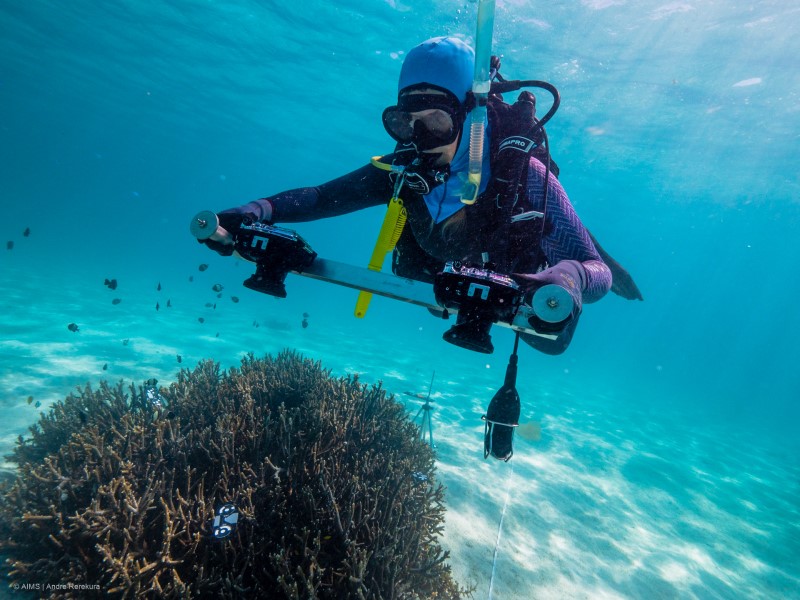The Australian Coral Reef Resilience Initiative (ACRRI) is novel national research to influence both the size of future adult fish populations and the amount of coral cover on a reef.
This initiative takes a ‘whole-of-system’ approach to reef restoration. Spanning two oceans, it combines research in coral re-seeding with healthy reef sounds to attract fish and improve the resilience of coral reefs being affected by climate change.
The program brings together research from two World Heritage sites:
- Woppaburra Coral Project on the Great Barrier Reef in Queensland; and
- Reef Song Project at Ningaloo Reef in Western Australia and on the Great Barrier Reef.
This is the first time in the world that coral restoration research has examined whether attracting more fish to settle on a reef positively influences coral settlement and growth.
If successful, it will lay the foundation for a completely novel ecosystem-based approach supporting coral reef resilience, adaptation and restoration, worldwide.
At the heart of this initiative is the building of meaningful partnerships with Traditional Owners of sea country in northern Australia. By sharing our two different knowledge systems, we hope to to deliver impactful research for all Australians.
The Australian Coral Reef Resilience Initiative is a seven-year, AUD27 million research program, and a partnership between Australian Institute of Marine Science and BHP.
Woppaburra Coral Project
Coral reef restoration science is a rapidly emerging research area driven by the imperative to reverse declines in the resilience of reef ecosystems due to the impacts of climate change.
Work to date has focused on improving coral survivorship and optimising heat tolerance.
The Keppel Islands are a group of coral-fringed continental islands, located about 15km of the coast of Yeppoon near Rockhampton, on the Southern Great Barrier Reef. The science team in Queensland is investigating the process of coral seeding, survivability and growth, to reduce high mortality during their first year of life.
Begun in 2019, the Woppaburra Coral Project is a partnership with Woppaburra Traditional Custodians. The partnership weaves western science with traditional ecological knowledge through on Country workshops. The results from these workshops have so far identified Traditional Owner aspirations, informed research site selection, and provided the Traditional Custodians with baseline data for future management of their sea country.
The project also creates skills and employment pathways in coral and fish aquaculture.
Coral spawning on Woppaburra sea Country
In November 2022, the Woppaburra Project team join Woppaburra Traditional Custodians on their sea Country during the annual Great Barrier Reef mass coral spawning in the region.
The event will progress the science on coral seeding, and build skills and knowledge about spawning and coral aquaculture, empowering them to manage sea Country in the future.
2022 coral spawning on sea Country
Reef Song Project
The AIMS research team in Ningaloo, Western Australia, is exploring the roles of fish husbandry and herbivory in promoting ecosystem recovery - in particular whether attracting more fish to settle on a reef positively influences the settlement and growth of coral after fertilisation.
A recent study shows that soundscapes of healthy reefs are settlement cues and can attract fish to a reef using acoustic enrichment (ie healthy reef sounds). The work of AIMS and BHP will seek to understand role of fishes in the recovery of coral reef ecosystems.
AIMS scientists are collecting underwater recordings from healthy reefs at both Ningaloo and the Great Barrier Reef and play them back, using underwater loudspeakers, to simulate the sound of a healthy reef to lure fish to the area to settle.




